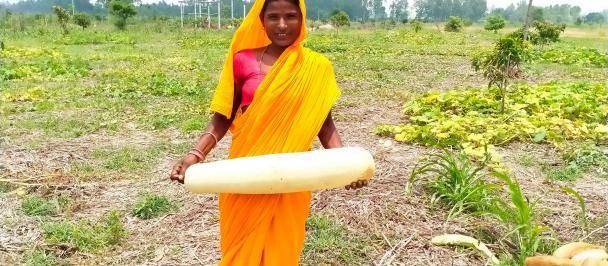By Bina Pradhan
Household enterprise for post-COVID recovery of livelihoods and jobs
September 12, 2020
The COVID-19 pandemic has had detrimental impacts on various segments of the economy. The Micro Small and Medium Enterprises (MSMEs) are among the hardest hit. Both formal and informal MSMEs are severely affected. This is primarily because of the fact that the MSMEs usually have low cash-to-asset ratio. A rapid assessment commissioned by UNDP shows that every three in five employees have lost their jobs in the micro and small businesses. The lockdown has threatened the very survival of many of these businesses. MSMEs and the home-based workers (entrepreneurs), most of whom are women, have poor access to resources and reports show that already over 80% of them are not functional. They will not be able to restart and adapt to the new normal without any special recovery support.
The pandemic has clearly brought into focus two critical factors in the development practice. First, the crisis has demonstrated just how essential “unpaid care” work is at home, in the economy and for our health and survival, which so far has been neglected.
Second, the pandemic has laid bare the starkest inequalities within countries and between countries. This has exacerbated the impact of COVID-19 creating differential impact on different groups and hitting the poorest and the vulnerable the hardest. Whatever we do during and post crisis for recovery of livelihoods and jobs should not just aim at putting the economy back to where it was before but strive for building a more equal, inclusive and sustainable economy that is resilient enough in coping with similar crisis in the future.
The crisis is of such an unprecedented scale and magnitude that we have no experience to fall back on. However, what is happening in reality is that households operate as a resilient enterprise absorbing all kinds of shocks and disasters, either human-made or natural.
These households, in economics, are assumed as consumption units and hence “unproductive” and “non-economic.” However, as they say, grasses are green on the other side, there are always good solutions that we can innovate and accelerate to address the challenges and issues imposed by the current crisis, and among those solutions, Household Enterprising is one of them.
There is a momentous need and significance of considering every household as an enterprise. Some of the areas and spheres where the households can maximize income and family welfare are family farm production activities such as agriculture, animal husbandry, domestic marketing and manufacturing activities such as weaving, sewing and handicraft. Women are also primary producers, within the households, of the tradable goods and related services such as coffee, tea, cardamom, lentil, ginger and herbal products.
In order to bring the concept of household enterprise into reality, it must be recognized and brought into planning process as an economic unit.
Every household must be treated as an enterprise (family farm enterprise) and supported with well-coordinated relief and economic stimulus package. Priority should be in aiding households with initial investment, capacity development, innovation and technology.
In the process, unpaid care work needs to be taken into account and given special attention, as it has immense significance in knitting the society together, from young to old and from household to hospital. Special provisions of economic compensation for guaranteeing social protection, including protection against domestic violence (which is on the rise), hospital and health care should be made.
About the author:
Bina Pradhan is working as an adviser at The Federation of Business & Professional Women, Nepal (FBPWN).

 Locations
Locations



